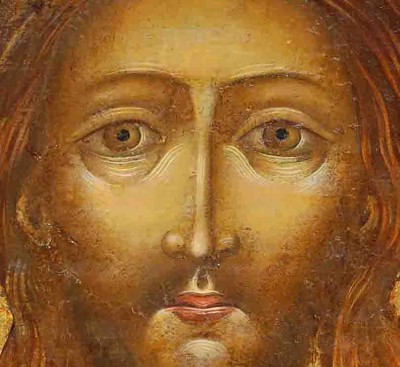Deus, cuius providentia
 The Collect
The Collect
It is, as I have so often said, by means of the Collect of the day — prayed once at Holy Mass, as well as at Matins, Lauds, Tierce, Sext, None, and Vespers, therefore seven times a day — that the Holy Ghost gives us the very prayer that God the Father is waiting to hear. The Collect of the day is the very prayer that God desires to answer. The petition formulated in the Collect of the day is the one request that we can present to God with the utter certainty of asking for something that He already wills to grant.
«The Spirit also helpeth our infirmity. For we know not what we should pray for as we ought; but the Spirit himself asketh for us with unspeakable groanings. And he that searcheth the hearts, knoweth what the Spirit desireth; because he asketh for the saints according to God» (Romans 8:26–27).
The Seven Gifts of the Holy Ghost
Seven weeks ago we were celebrating Pentecost. Seven weeks ago we were beseeching the Holy Ghost to visit us and grace us with His seven gifts: wisdom, understanding, counsel, fortitude, knowledge, piety, and fear of the Lord. As we progress in this time after Pentecost — the long summer season of Green Sundays — we will, if our hearts are attentive, discover that all seven gifts are brought into play by the various events, and circumstances, changes, and challenges of life.
There is not a single event, circumstance, change, or challenge for which there is not a corresponding gift of the Holy Ghost. Divine Providence so arranges our lives that at every moment we are being prompted by the Holy Ghost to make use of one or another of His seven gifts. The same Providence that orders your life and mine, sees to it that we are never left without the supernatural means needed to take on the day, and face the hour, and seize the moment of God’s mysterious passages.
The Answer to All Our Fears
Today’s Collect has always been for me an immensely comforting: not only by reason of what it asks of God, but also in what it tells us we are to believe about God. The Collect begins with an affirmation that contains the answer to all our fears, our anxieties, our desperate questionings, our hesitations:
Deus, cuius providentia in sui dispositione non fallitur . . .
O God, whose providence in the ordering of all things never fails . . .
Lex Orandi
Here, we have the lex orandi, that by which we can securely pray to God, but we also have the lex credendi, that which we are bound to believe, and even more, we have the lex vivendi, that truth according to which we must order our lives, make our choices, and go forward, one step at a time, fearlessly and prudently.
Divine Providence
It is a very great and comforting thing to be able to address God, saying, «Thy providence, in the ordering (the arrangement, the disposition, the orchestration) of all things never fails. Non fallitur.
It is a source of peace to confess one’s faith in these same words: «I believe — and I believe it because the prayer of the Church says it — I believe that the providence (by which God has arranged, and disposed, and orchestrated all the circumstances, and coinicidences, and encounters, and details of my life), this providence of God cannot fail. Non fallitur. I believe that the providence of God will never let me down, nor disappoint me, nor trick me, nor mislead me, nor cause me to regret my having trusted His leadings.
I love the word of the saintly Père Lelièvre (1826-1889), the priest associate of the Little Sisters of the Poor in the 19th century:
I know that I serve a Master
who values the will of a sincere heart
beyond any talent.
My ignorance counts on His knowledge,
my poverty on His wealth,
my weakness, on HIs strength.
And I know,
and am perfectly certain that,
of all the calculations I could make,
the wisest is to abandon myself to Him.
The highest wisdom to go forward in life with an unconditional confidence in the Providence of God. Non fallitur.
No Mistake
It is no mistake that you and I are here this morning. No mistake that you have been led by one path rather than by another.
No mistake that things have turned out in your life as they have . . . thus far. The only mistake is our pathetic little want of trust in the Providence of God.
Abandonment
The wisest course of action is abandonment to Divine Providence — not to a vague, sentimental, undefined Providence that hides itself amidst the clouds — but to a living, active, ever–present Providence that reveals itself to me and to you, and even through me to you, and through you to me, and through what we, for want of a better word, call happenstance.
If it happens, it is because the Providence of God has either willed or permitted it, and the Providence of God doesn’t make mistakes. Non fallitur.


Thank you for these words Father!